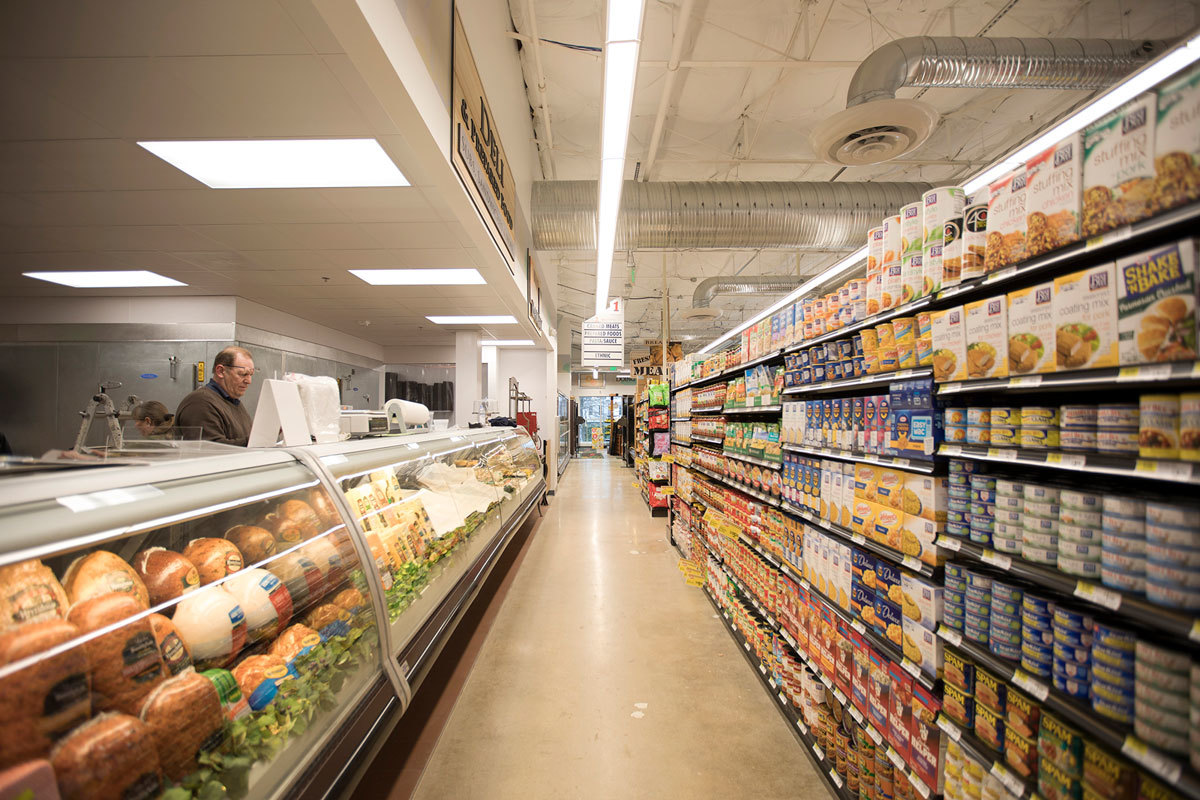
On March 7, the Salvation Army opened its first-ever, full-service, grocery store on the corner of 29th and Barclay in Northeast Baltimore. DMG Foods, named after the nonprofit’s promise of “doing the most good,” has a goal of providing local residents with affordable, nutritious food options, meal planning, and job training.
The impetus for the neighborhood grocery store came when Major Gene Hogg, the Salvation Army’s Central Maryland area commander, was out with the organization’s mobile units providing food to protesters and first-responders following the Freddie Gray uprising. The mobile units were supplying roughly 150 bags of food every day to the Barclay neighborhood, but Hogg believed he could do more.
“We knew that we could not sustain that,” he said. “We thought about revamping our food delivery platform, but one day, God woke me up at 3 a.m. and said to open up a grocery store.”
Hogg hopes that this store will make a difference for the residents in the neighborhood, who would typically have to travel a minimum of seven miles to shop. Before heading over to DMG Foods, here are five things to know.
The prices are right.
Compared to other major grocery stores in Baltimore, DMG Foods has some of the lowest prices in the area. Although it is not considered a supermarket, the corner grocery store has prices that are comparable to big box stores like Sam’s Club and Costco.
“Because we are a nonprofit, our goal isn’t to make money,” Hogg said. “We can get wholesale items at a cheaper rate and sell them at affordable prices. Our goal is to help the people in the community, not make a profit.”
DMG Foods is partnered with the Maryland Food Bank.
On top of having an on-site butcher, deli, and bakery, the partnership with the Maryland Food Bank provides prepared meals for a family of four, salads, cooking demonstrations, and nutritional assistance.
“We have a professional staff of chefs who do our catering and our meal production and so we saw this as an opportunity to grow a new revenue stream,” said Tim Regan, VP of programs and network relations for the Salvation Army. “We’re also taking a leadership role in a way for what they’re going to do for cooking demonstrations in the store. Our Food Works staff will be involved with helping them coordinate the cooking demos as well as other nutritional training.”
There is also on-site job training.
In addition to providing affordable groceries, DMG Foods also provides workforce development program to train prospective store employees. Hogg has been working on partnering with other grocers in Baltimore to provide employees for their stores.
“They have expressed challenges finding quality employees,” Hogg said. “We are going to give these individuals the skills they need, and the grocers promise to hire them once they complete our program.”
The Red Shield Card has special offers for members.
Just like every other major grocery store, DMG Foods has a customer rewards program called the Red Shield Card. Inside the store there is a kiosk where customers scan their cards to collect coupons and deals before shopping. There are also special perks for customers who receive government assistance like food stamps or WIC—think 10 pounds of free chicken and energy-saving light bulbs from BGE.
“The cards look exactly the same for both types of users,” Hogg explained. “Many people who receive assistance experience insecurities about that. We want them to feel just like everyone else and still help them whenever we can with special deals.”
If they make a profit, at the year of the year all money will go to charity.
Because DMG Foods is a nonprofit, the organization is not permitted to keep any profit from the store should it make any this year. In the event it does, all money will go to an organization called Catherine’s Cottage, a home for sex trafficking rescues.
“Not only are you getting your food at a decent price when you’re shopping at the store,” Hogg said. “But you’re also helping people who have been rescued—you are helping to change a life.”
